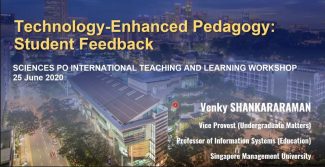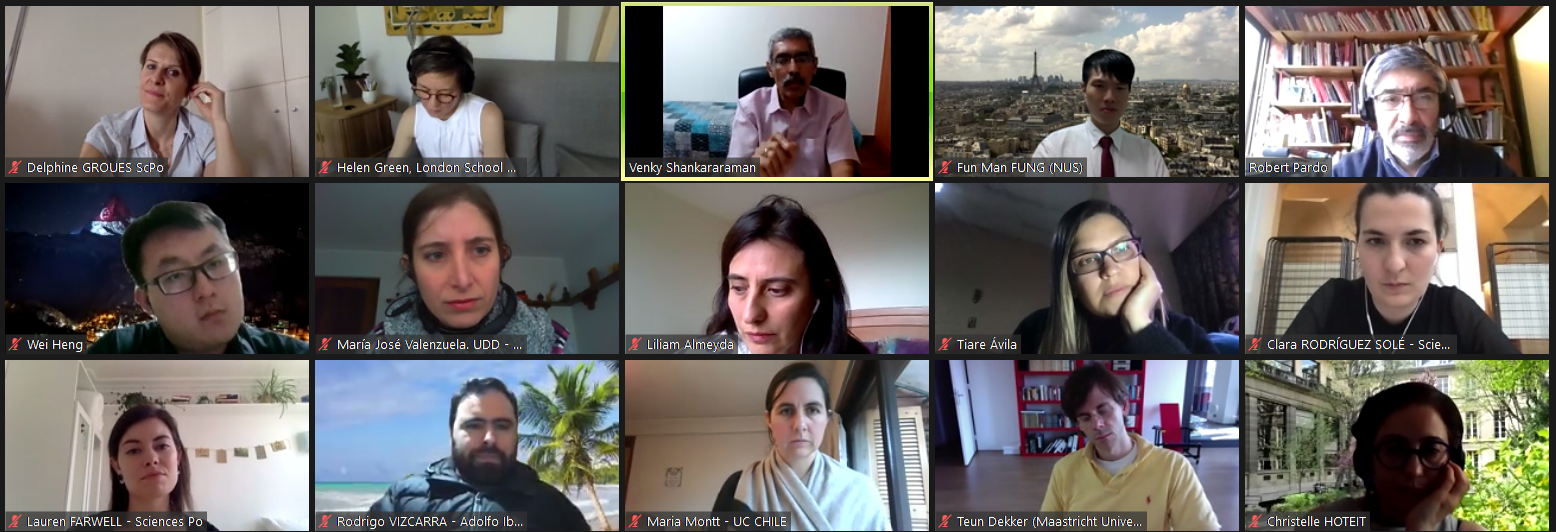
“Technology is the key to driving self-directed learning and development at SMU, not only among its graduates, but also for its faculty” says SMU Vice Provost Venky Shankararaman. This is why SMU developed innovative feedback tools for both students and instructors to share mutual feedback and monitor personal performance.
Prof Shankararaman shared this and other aspects of SMU’s technology-enhanced pedagogy at the 3rd Sciences Po International Teaching and Learning Workshop on 25th June 2020, alongside leading educators from Sciences Po, London School of Economics, Harvard University and King’s College London. Originally scheduled to be held in Paris, the workshop moved online due to the Covid-19 situation but still attracted good participation and active dialogue among some 30 pedagogy experts from universities across Asia, Europe, the US and South America.
The workshop, with the theme “Binding Skills and Curricula: Programmes, Courses and Pedagogical Redesign”, saw Prof Shankararaman sharing with participants SMU’s Graduate Learning Outcomes (GLO) System and Student Feedback Analytics Tool. Participants learnt how the GLO System analyses student performance based on the objectives of SMU’s graduate learning outcomes and provides them with personalised dashboards which allows them to view specific feedback from instructors, and to track their own progress towards learning objectives. The Student Feedback Analytics Tool on the other hand, enables instructors to receive feedback from their students on various aspects of their courses through data visualisations that aid them in improving or adapting their course content and lesson delivery.
Participants were keen to learn more about how SMU leveraged technology in personalised learning and how these initiatives would benefit the teaching faculty and if students would be trained to utilise these tools. Adolfo Ibáñez University’s Learning Centre Director, Robert Pardo expressed interest to reference SMU’s personalised feedback system at his university.
Over the two-day workshop, participants also heard from LSE LIFE Learning Developer Helen Green, who presented on how LSE continued to provide study support to students during the lockdown period in London. Harvard’s Center for Hellenic Studies Assistant Director of Curricular development Nicholas Prevelakis shared more about the experiential learning model and its benefits and challenges.
This is SMU’s third time participating in Sciences Po’s annual international workshop for the mutual sharing of innovative teaching and learning approaches by leading universities around the world, since it was first organised in 2018. We continue to share and learn about innovations and experiences in the development and implementation of new pedagogies, to bring new perspectives and insights to teaching and learning in SMU.
